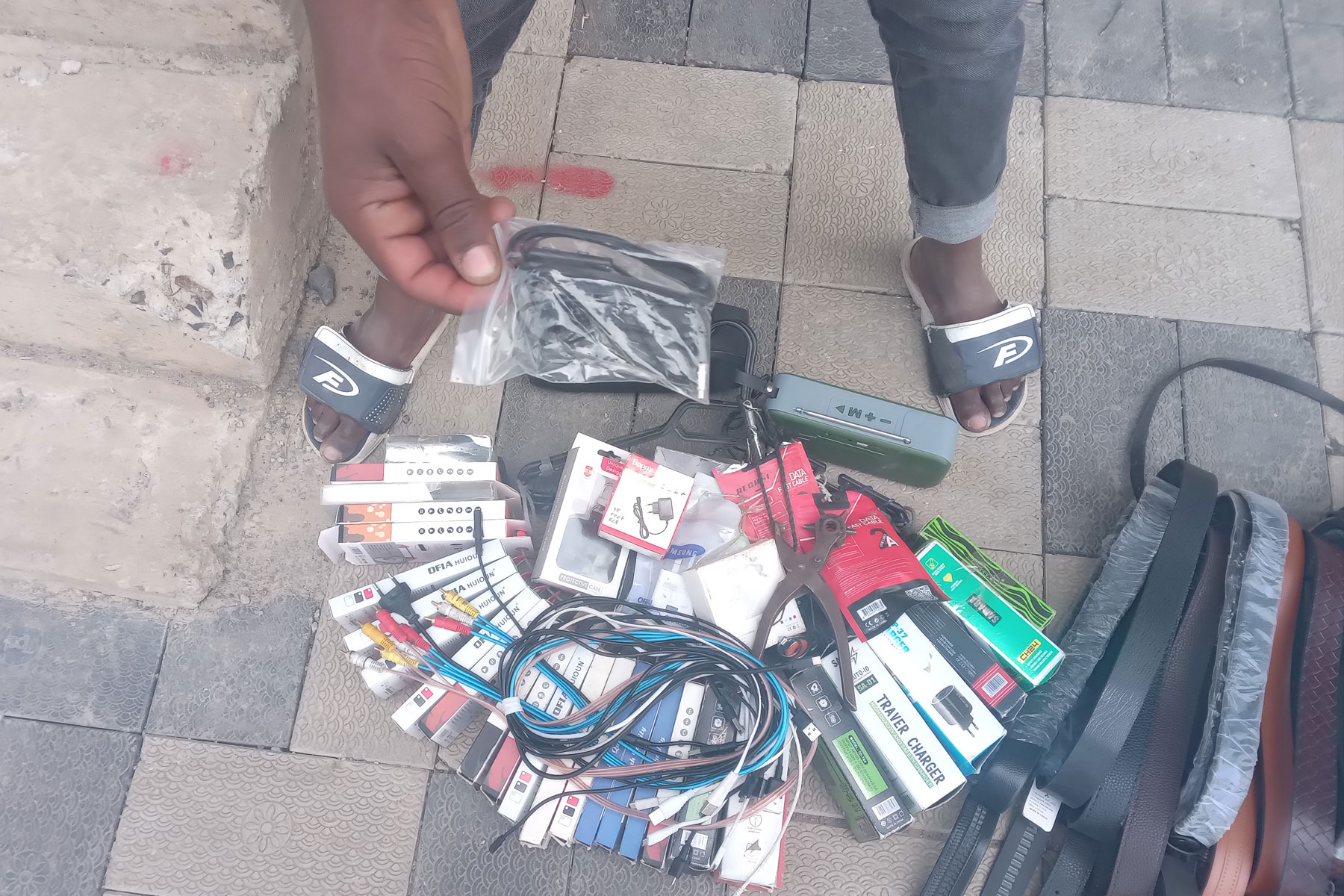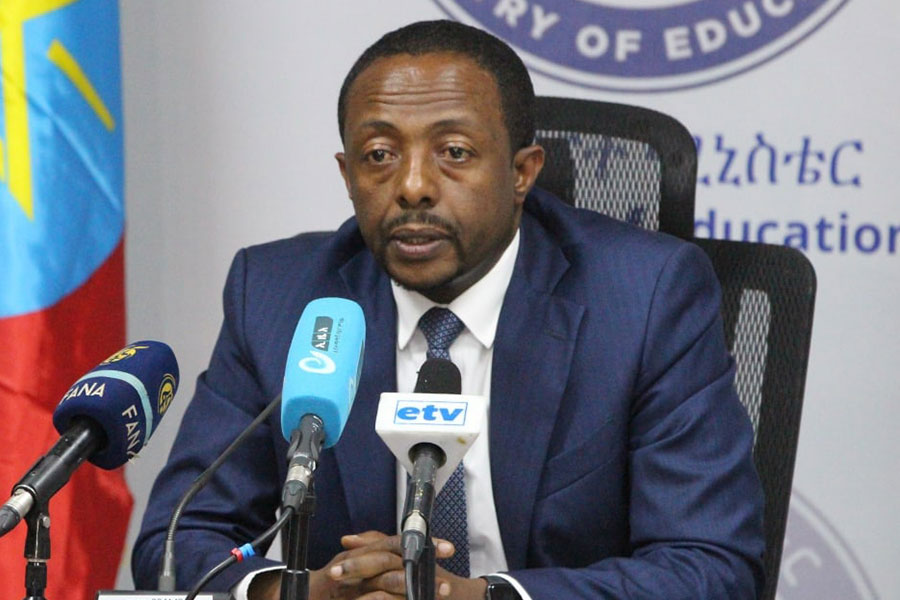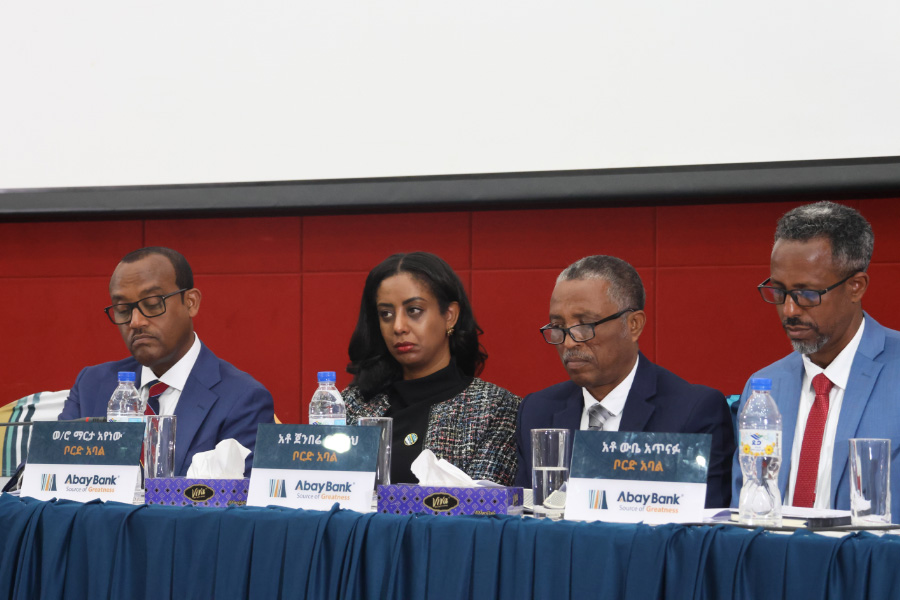
Viewpoints | Jul 27,2024
The cracks in Ethiopia's higher education system were laid bare during a synthesis report presented at the Academy of Science last week. The study, led by Belay Hagos (PhD), director of the Institute of Educational Research with three decades of experience, revealed severe quality crises and structural issues that have persisted for decades, impacting the effectiveness and credibility of the country's universities. The report examined the core problems, the consequences for graduates and the labour market, and potential reforms to improve the system, observing 30 years of data.
The 70-30 policy, which channels students into natural and social science streams based on labour market priorities, stands out as a major flaw, according to Belay. He criticises this policy for its lack of alignment with actual market dynamics, student capabilities, and university capacities. Implemented without sufficient research, he believes it has led to high unemployment rates among graduates, particularly engineers.
"There are many unemployed engineers because of that decision," Belay said, stressing the disconnect between educational output and labour market demand.
University enrollment has surged from 60,000 nearly two decades ago to 600,000 last year. However, Belay noted the quantitative measure came without a corresponding improvement in educational quality. Graduates often lack essential skills, such as language competence, analytical abilities, and subject matter retention. He believes the skills gap is exacerbated by a severe shortage of qualified educators, with only 11pc of the nearly 49,000 university teachers holding doctorates, and just 298 achieving the status of professor.
The study attributes the proliferation of under-resourced institutions that cannot provide a robust educational experience to the indiscriminate labelling of institutions as universities, without ensuring they meet necessary standards.
Belay also presented issues within postgraduate education, ranging from flawed student selection processes to unspecific curricula. He said many universities use identical curricula without adapting to regional needs, which undermines the quality of education.
"This has endangered quality," he said, emphasising the need for tailored academic programs that address local demands and industry requirements.
The study found that only 716 of the nearly 10,000 students who tested for university assistant lecturer positions obtained passing grades seven years ago during a national project to build 11 new universities. This low pass rate points to faulty evaluation schemes and the need for rigorous selection and training of educators.
Under Berhanu Nega (Prof), the Ministry of Education has implemented reforms aimed at improving educational quality. Stringent university entrance and exit exams have resulted in unprecedented failures, with just over 55,000 students passing from nearly 1.7 million examinees over two years. While these measures show the extent of the quality crisis, they are not standalone solutions.
The government has taken some initiatives. The recently approved federal budget allocates nearly 80 billion Br to the education sector, focusing on foundational education rather than expanding higher education infrastructure.
In his last Parliament address, Prime Minister Abiy Ahmed (PhD) announced a strategic shift towards prioritising kindergarten and primary education, with no new university constructions planned for the foreseeable future.
Tekle Leza (PhD), vice president of Wolaita Sodo University, supports this reprioritisation. He argues that the rush to build new campuses over the past two decades compromised quality due to inadequate attention to books, teachers, and physical infrastructure. He recalls attending postgraduate studies with small class sizes that allowed for close instructor attention, a stark contrast to today's overcrowded programs.
Belay says these examination results show deep-rooted problems but are not a solution. He refers to a recent World Bank study indicating that most eighth-grade students have fourth-grade comprehension skills.
"High failure rates will continue without lifelong investment in children," he told Fortune.
The researcher supports the trend of making universities autonomous, as adopted by the Education Ministry, believing it will drive quality improvement. He expects universities to pay closer attention to their academic affairs to attract enough demand from paying students.
"There is a lot to reconsider in education financing," Belay said.
PUBLISHED ON
Jul 13,2024 [ VOL
25 , NO
1263]

Viewpoints | Jul 27,2024

Agenda | Jun 01,2024

Fortune News | Aug 06,2022

Viewpoints | Apr 26,2025

Fortune News | Mar 02,2024

Radar | Nov 24,2024

Radar | Jan 28,2023

Radar | Oct 19,2024

Fortune News | Aug 12,2023

View From Arada | Aug 12,2023

Dec 22 , 2024 . By TIZITA SHEWAFERAW
Charged with transforming colossal state-owned enterprises into modern and competitiv...

Aug 18 , 2024 . By AKSAH ITALO
Although predictable Yonas Zerihun's job in the ride-hailing service is not immune to...

Jul 28 , 2024 . By TIZITA SHEWAFERAW
Unhabitual, perhaps too many, Samuel Gebreyohannes, 38, used to occasionally enjoy a couple of beers at breakfast. However, he recently swit...

Jul 13 , 2024 . By AKSAH ITALO
Investors who rely on tractors, trucks, and field vehicles for commuting, transporting commodities, and f...

Nov 1 , 2025
The National Bank of Ethiopia (NBE) issued a statement two weeks ago that appeared to...

Oct 25 , 2025
The regulatory machinery is on overdrive. In only two years, no fewer than 35 new pro...

Oct 18 , 2025
The political establishment, notably the ruling party and its top brass, has become p...

Oct 11 , 2025
Ladislas Farago, a roving Associated Press (AP) correspondent, arrived in Ethiopia in...